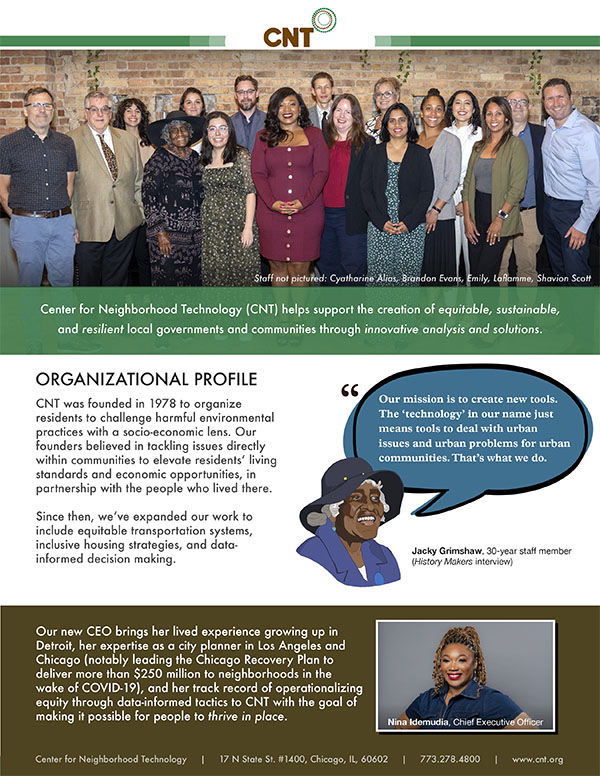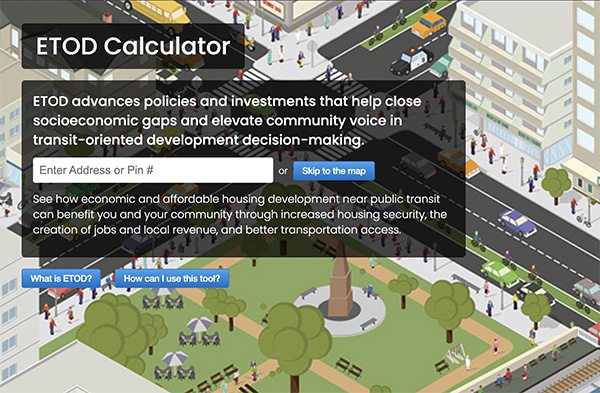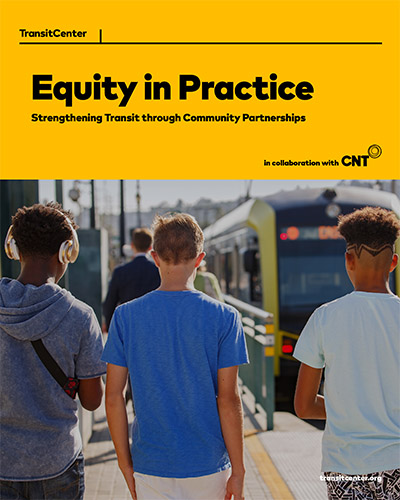We’re proud to announce that Kyle Smith, CNT’s Economic Development Project Manager, is a winner of the Urban Land Institute Chicago’s Young Visionary award.
Through his work at CNT, Kyle has helped shape regional policy priorities to encourage smart land use that benefits communities and strengthens local markets. One of his seminal achievements thus far has been getting key agency stakeholders, mayors, and developers to embrace Priority Development Areas (PDAs). He first recommended PDAs as a co-author of Prospering in Place, which called for state and regional agencies to target infrastructure, housing, and economic development investments to implement transit- and cargo-oriented development.

Recently, Kyle’s work has largely focused on reducing off-street parking to accelerate the construction of affordable housing. Last summer, Kyle led CNT’s response to the Mayor’s Affordable Housing Task Force, which was considering changes to Chicago’s Affordable Requirements Ordinance (ARO). Rather than housing cars near transit, zoning should encourage housing people near transit – and pass on the savings through inclusionary policies. The Task Force followed CNT’s recommendations, thanks in part to Kyle’s contributions. Under proposed amendments to the ARO, parcels that qualify for the existing transit-oriented development (TOD) ordinance may reduce parking to one spot per four units, but only if they pass on the savings through affordable units for low-income households.
Kyle’s commitment to affordable housing near transit was also central to his latest publication, Quality of Life, (e)Quality of Place. The report is a guidebook co-written with Open Communities offering case studies, policy recommendations, and public participation tools to help suburbs build affordable, accessible housing around transit stops.
“I’m honored to have my work recognized by such an esteemed group,” Smith said. “Right now, our region is at a crossroads. We can continue to spread around our transportation dollars and spur sprawl, mandate parking nobody uses, and zone out multifamily development so that living near transit becomes a luxury for those who can afford it. Or, we can work together and build a region of the future. With visionary zoning changes, incentives for affordable housing, and transportation investments that prioritize TOD, we can build region that works for everybody.”





 Strengthening Transit Through Community Partnerships
Strengthening Transit Through Community Partnerships



 RSS Feed
RSS Feed